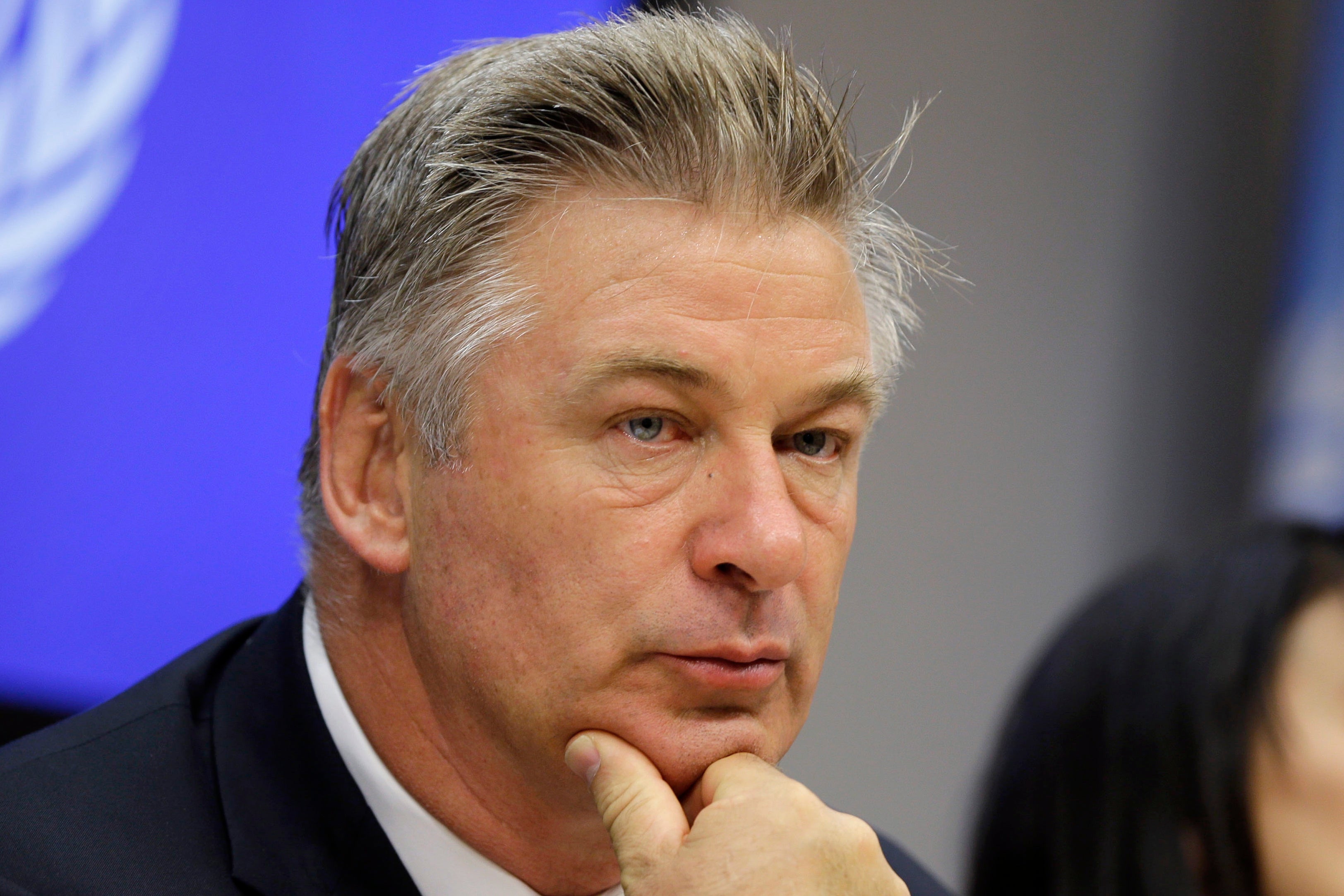My family went through an unintentional shooting - I know what Alec Baldwin is going through
My family has always called the shooting and death of our neighbor “the accident.” But it was not an accident.

Your support helps us to tell the story
From reproductive rights to climate change to Big Tech, The Independent is on the ground when the story is developing. Whether it's investigating the financials of Elon Musk's pro-Trump PAC or producing our latest documentary, 'The A Word', which shines a light on the American women fighting for reproductive rights, we know how important it is to parse out the facts from the messaging.
At such a critical moment in US history, we need reporters on the ground. Your donation allows us to keep sending journalists to speak to both sides of the story.
The Independent is trusted by Americans across the entire political spectrum. And unlike many other quality news outlets, we choose not to lock Americans out of our reporting and analysis with paywalls. We believe quality journalism should be available to everyone, paid for by those who can afford it.
Your support makes all the difference.When I first heard about the death of cinematographer Halyna Hutchins and the injury of director Joel Souza on the set of Rust, I felt a familiar gut-punch.
On a spring evening in 1975, when I was twelve years old, my father, a gunsmith, unintentionally shot our next-door neighbor while test-firing a faulty pistol in a gun shop in our backyard in southeastern Pennsylvania. He fired one round, which landed in a wooden target below a window. Then, unbeknownst to him, another round discharged, pierced the window, crossed our neighbor’s driveway, entered his garage, and ripped through his abdomen and out his back. He’d gone in there for a gardening tool and crawled out fighting for his life. I raced from our swing set toward my father’s voice, coming upon him crying for help over our neighbor’s body. Peering over a chain-link fence, I tried to make sense of that scene. Less than two days later, our neighbor was dead.
In the immediate aftermath and the decades since, I have been trying to make sense of how this could have happened in the first place. News accounts alleged that my father’s business was illegal in a residential area, that he had never gotten a zoning variance, and that discharging a firearm in our neighbourhood was illegal. Yet no criminal charges were brought against him. It was deemed an “accident.” As a child, I was relieved. I didn’t want my father to go to jail. But I also felt shame because I knew, on some level, that he was at fault.
When I later went to graduate school for urban planning and became a home owner myself, my understanding of the purpose of zoning deepened. Why had our town’s zoning officer not enforced the law? Why had the police regularly brought their firearms to my dad’s shop? When I dug up the civil litigation filed by the widow against my parents and our town, I found out that neighbors had complained to town officials about test-firing taking place in the shop prior to the shooting, but no one heeded their alarm.
As there were in my town in 1975, there are multi-layered systems in place to ensure the safe use of firearms in the creation of any film. Clearly those systems failed on October 21, 2021. Now, Alec Baldwin, who fired the shot that killed Hutchins, and Hannah Gutierrez Reed, the prop armoror responsible for the firearms on set, have each been charged with two counts of involuntary manslaughter. Notably, Dave Halls, the assistant director who gave the gun to Baldwin, made a plea deal in which he took responsibility for negligent use of a deadly weapon.
It’s discouraging to read the actors union SAG-AFTRA statement in response to the charges against Baldwin, including, “the guidelines do not make it the performer’s responsibility to check any firearm. Performers train to perform, and they are not required or expected to be experts on guns or experienced in their use.” That any person would hold any firearm and not understand its mechanics or assume a higher level of accountability for the safety of all in the vicinity goes against the basic tenets of firearm safety.
If I were an actor and had to use a gun in a scene, I’d be certain to know how to open the action, check the chamber, and identify dummy versus live ammunition before I’d point that gun at another human being. Though, is that only because my twelve-year-old self saw how one bullet can suddenly end a life? I knew I could never trust my dad after that. He had put me, my entire family, and our neighbors at risk the many times he had test-fired in that shop. In my experience, firearm “experts” are not infallible. I’d want to be actively part of the process of checking and re-checking to be sure the firearm was indeed a “cold gun,” the term used to denote an empty firearm or one containing dummy rounds.
Actors prepare deeply in myriad ways for their roles. The notion that they have no obligation to understand the way a potentially deadly prop operates is a kind of magical thinking. Requiring actors using a firearm in a scene to know how to handle that specific gun provides another layer of safety. Enforcing that requirement and all the other safeguards already in place every single time demands an unwavering commitment to the life of everyone on set.
My family has always called the shooting and death of our neighbor “the accident.” It was not an accident. It was an unintentional shooting. It was preventable. And so was the death of Halyna Hutchins.
Sue Repko is a writer and gun violence prevention advocate. She has written a memoir about her relationship with her father.